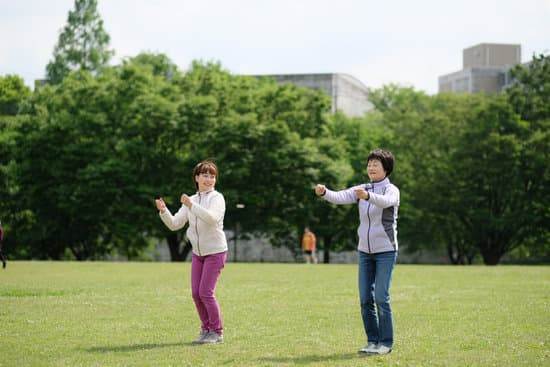Physical fitness plays a crucial role in promoting overall health and well-being. Engaging in regular physical activity not only enhances one’s physical capabilities but also offers numerous benefits for mental, emotional, and cognitive health. From disease prevention to weight management, improved athletic performance to increased longevity, physical fitness is an essential aspect of maintaining a healthy and fulfilling life.
Physical fitness can be defined as the ability to perform daily tasks with vigor and resilience while also being able to adapt and respond effectively to physical demands. It comprises various components, including cardiovascular endurance, muscular strength, flexibility, and body composition. Each of these components contributes to overall fitness and determines an individual’s ability to engage in different types of activities.
One significant benefit of physical fitness is its role in preventing chronic diseases. Regular exercise and maintaining a high level of physical fitness can significantly reduce the risk of developing conditions such as obesity, heart disease, diabetes, and certain types of cancers. By improving cardiovascular health and metabolism, reducing inflammation, and enhancing immune function, physical fitness acts as a powerful preventive measure against these prevalent health concerns.
Furthermore, physical fitness positively impacts mental health. Engaging in exercise releases endorphins that promote feelings of happiness and well-being. Regular physical activity also improves mental clarity and reduces stress levels by releasing tension from the body. This boost in mood and reduction in stress can lead to improved sleep quality and enhanced emotional well-being.
Definition of Physical Fitness
Cardiovascular Endurance
Physical fitness encompasses various components that contribute to overall health and well-being. One essential aspect of physical fitness is cardiovascular endurance, which refers to the ability of the heart, lungs, and blood vessels to efficiently deliver oxygen and nutrients to working muscles during prolonged periods of exercise. Cardiovascular endurance is crucial for activities that require sustained effort, such as running, swimming, or cycling.
Regular aerobic exercise, such as brisk walking, jogging, or cycling, can improve cardiovascular endurance over time. Engaging in activities that elevate your heart rate and make you breathe harder strengthens your heart and improves its efficiency. As a result, you will experience benefits such as reduced fatigue during daily tasks, lower blood pressure, improved cholesterol levels, and a decreased risk of cardiovascular diseases like heart disease and stroke.
Muscular Strength and Flexibility
Another important component of physical fitness is muscular strength. Muscular strength refers to the ability of your muscles to exert force against resistance. Regular strength training exercises using weights or resistance bands can increase muscle mass and strength. This not only enhances your ability to perform everyday tasks with ease but also reduces the risk of injuries by improving posture and joint stability.
Flexibility is yet another key component of physical fitness. It refers to the range of motion available at a particular joint or group of joints. Maintaining good flexibility allows you to move freely without restrictions. Stretching exercises performed regularly can improve flexibility by increasing the elasticity of muscles and tendons.
Body Composition
Body composition plays a crucial role in physical fitness. It refers to the relative amounts of fat mass and lean body mass (muscles, bones, organs) in your body. Achieving a healthy body composition involves reducing excess body fat while maintaining adequate muscle mass.
Excess body fat increases the risk of various chronic diseases such as diabetes, heart disease, and certain types of cancers. On the other hand, having a higher proportion of lean body mass is associated with better metabolic health and improved physical performance. Engaging in regular physical activity, including both cardio and strength training exercises, can help achieve a healthy body composition by reducing body fat and increasing muscle mass.
Maintaining physical fitness by improving cardiovascular endurance, muscular strength, flexibility, and achieving a healthy body composition has numerous benefits for overall health and well-being. Incorporating activities that target these components into your lifestyle will play a vital role in promoting a healthier, happier you.
Physical Fitness and Disease Prevention
One of the key benefits of physical fitness is its ability to prevent or reduce the risk of chronic diseases. Regular exercise and an active lifestyle have been shown to be effective in preventing a range of health conditions, including obesity, heart disease, diabetes, and certain types of cancers.
Obesity is a major health concern worldwide and is associated with an increased risk of several chronic diseases. Physical fitness plays a crucial role in weight management by promoting calorie expenditure and reducing body fat. Engaging in regular physical activity helps individuals maintain a healthy weight or achieve weight loss if necessary, reducing their risk of developing obesity-related conditions such as type 2 diabetes, hypertension, and cardiovascular disease.
Heart disease is another leading cause of global mortality. Regular exercise improves cardiovascular health by strengthening the heart muscle and improving blood circulation. It helps lower blood pressure, cholesterol levels, and reduces the risk of developing coronary artery disease. Engaging in aerobic activities like jogging, cycling, or swimming can significantly reduce the risk of heart disease.
Type 2 diabetes is a metabolic disorder characterized by high blood sugar levels. Physical fitness promotes insulin sensitivity – the body’s ability to use glucose effectively – thereby reducing the risk of developing diabetes. Regular exercise also helps with weight management, which is particularly important as excess weight is a major factor contributing to the development of type 2 diabetes.
Certain types of cancers are also closely linked to physical fitness levels. Engaging in regular physical activity has been shown to decrease the risk of colon cancer by up to 50% and breast cancer by up to 20%. Exercise helps regulate hormone levels, boost immune function, improve digestion, and reduce inflammation – all factors that contribute to cancer prevention.
| Chronic Disease | Risk Reduction |
|---|---|
| Obesity | Reduces the risk by promoting weight management and reducing body fat. |
| Heart Disease | Lowers blood pressure, cholesterol levels, and strengthens the heart muscle. |
| Type 2 Diabetes | Promotes insulin sensitivity and helps with weight management. |
| Cancers | Decreases the risk of colon cancer by up to 50% and breast cancer by up to 20%. |
Mental Health Benefits
Regular exercise and physical fitness not only have a profound impact on our physical well-being but also play a crucial role in maintaining good mental health. Engaging in regular physical activity has been shown to have numerous mental health benefits, including improving mental clarity, reducing stress levels, boosting mood, and enhancing overall emotional well-being.
One of the primary ways that exercise positively affects mental health is by reducing stress. Physical activity stimulates the release of endorphins, which are often referred to as “feel-good” hormones because they help alleviate feelings of stress and anxiety. Additionally, exercise increases the production of neurotransmitters like serotonin and dopamine, which are associated with improved mood and feelings of happiness.
Regular exercise and physical fitness also contribute to mental clarity. When we engage in physical activity, blood flow to the brain increases, delivering oxygen and nutrients that support optimal brain function. This enhanced blood flow can improve cognitive function, memory retention, and concentration, leading to better mental clarity and focus throughout the day.
Furthermore, exercise has been shown to be an effective way to manage symptoms of depression and anxiety. Engaging in regular physical activity can reduce symptoms of depression by increasing the secretion of endorphins while also providing an outlet for stress reduction. Exercise can act as a distraction from negative thoughts and feelings and offer individuals a healthy coping mechanism for managing their emotions.
Enhanced Physical Performance
Regular physical fitness has been shown to significantly enhance an individual’s physical performance, stamina, coordination, and overall physical capabilities. Engaging in regular exercise and maintaining a high level of physical fitness not only allows individuals to excel in sports and athletic activities but also improves their ability to carry out daily tasks with ease.
One key benefit of physical fitness is improved athletic performance. Through consistent training and exercise, individuals can build strength, endurance, and power, which are essential for excelling in various sports. Improved cardiovascular endurance allows athletes to sustain intense physical activity for longer periods without experiencing fatigue.
Additionally, greater muscular strength and flexibility contribute to better performance and reduced risk of injury. Whether it be running faster, jumping higher, or throwing farther, physical fitness plays a crucial role in maximizing athletic potential.
In addition to enhancing sports performance, physical fitness also improves stamina and overall energy levels. Regular exercise boosts the efficiency of the cardiovascular system, increasing the body’s capacity to deliver oxygen-rich blood to working muscles. This leads to reduced feelings of fatigue during both physical and mental activities throughout the day. Moreover, increased stamina enables individuals to engage in prolonged periods of physical activity without tiring quickly.
Enhanced coordination is another significant benefit of being physically fit. Regular exercise improves neuromuscular connections, allowing individuals to have better control over their movements. This improved coordination translates into improved performance not only in sports but also in daily activities such as walking, climbing stairs, or carrying heavy objects.
| Physical Performance Factors | Benefits |
|---|---|
| Athletic Performance | Improved strength,endurance,power for excelling in sports |
| Stamina | Increased energy levels during both physical and mental activities |
| Coordination | Better control over movements in sports and daily activities |
Weight Management and Body Composition
Physical fitness plays a vital role in weight management and achieving a healthy body composition. When individuals engage in regular exercise and adopt a physically active lifestyle, they are more likely to maintain a healthy weight and reduce the risk of obesity. This is because physical activity helps increase energy expenditure, which can lead to calorie burning and contribute to weight loss or maintenance.
Calorie Burning and Weight Loss
One of the primary ways physical fitness impacts weight management is through calorie burning. During exercise, the body utilizes stored glycogen as its first source of energy. Once glycogen stores deplete, the body starts using stored fat as fuel, leading to fat loss over time.
Regular participation in aerobic exercises such as jogging, cycling, swimming, or brisk walking can significantly aid in weight loss efforts. Combining aerobic activities with strength training exercises can help build lean muscle mass while further boosting metabolism, leading to increased fat burning even at rest.
Muscle Tone and Body Composition
Physical fitness not only affects weight but also has an impact on body composition. Engaging in strength training exercises helps develop lean muscle mass while reducing excess body fat. As individuals participate in resistance training activities like lifting weights or doing bodyweight exercises, their muscles undergo microtears that repair during recovery periods.
This process makes muscles stronger and more toned over time. Increased muscle mass also contributes to an enhanced metabolic rate, as muscles require more energy for maintenance than fat cells do. Thus, regular physical activity can lead to positive changes in body composition by reducing fat levels and increasing muscle mass.
The Importance of Balanced Nutrition
While physical fitness is crucial for weight management and achieving a desirable body composition, it is essential to acknowledge the importance of balanced nutrition. Regular exercise should be combined with a healthy, well-rounded diet to optimize results.
A nutritious diet that includes an appropriate balance of macronutrients and portion control is crucial for weight management. It is recommended to consult with a registered dietitian or nutritionist to develop a personalized plan that aligns with individual goals and ensures adequate nourishment.
Improved Quality of Life and Longevity
Physical fitness plays a crucial role in improving the overall quality of life and promoting longevity. By engaging in regular exercise and maintaining physical fitness, individuals can enhance their functional independence, enabling them to perform daily tasks with ease and efficiency.
One of the key benefits of physical fitness is its ability to improve mobility and flexibility. Regular exercise helps to strengthen muscles, increase joint range of motion, and enhance balance, which are all essential for performing everyday activities such as walking, climbing stairs, and carrying groceries. Strong muscles also provide support for the skeletal system, reducing the risk of falls and fractures, particularly among older adults.
Moreover, physical fitness contributes to cardiovascular health, which is vital for maintaining stamina and endurance. A strong heart and healthy lungs enable individuals to engage in various forms of physical activity without excessive fatigue or shortness of breath. This increased cardiovascular capacity translates into better performance in daily tasks that require sustained effort, such as gardening, housekeeping, or playing with children or grandchildren.
In addition to improving functional independence, physical fitness has been associated with a longer lifespan. Numerous studies have shown that individuals who engage in regular exercise tend to have a lower risk of premature death compared to their sedentary counterparts. Physical activity helps prevent chronic diseases such as heart disease, diabetes, and certain types of cancers that can significantly impact lifespan. Furthermore, exercise promotes optimal organ function and cellular health throughout the body, contributing to overall longevity.
Overall, by promoting functional independence and increasing longevity, physical fitness greatly enhances an individual’s quality of life. Incorporating regular exercise into daily routines is therefore critical for individuals looking to maintain their ability to carry out daily activities effectively while enjoying a healthier and more fulfilling life.
Social and Cognitive Benefits
Physical fitness goes beyond just physical health and performance. It also has significant social and cognitive benefits that can greatly enhance overall well-being. One of the social aspects of physical fitness is its ability to foster social connections and create a sense of belonging within a community or group.
Engaging in physical activities such as team sports, group fitness classes, or outdoor recreational activities allows individuals to bond with others who share similar interests and goals. This sense of camaraderie and support not only improves social interactions but also contributes to overall mental well-being.
Furthermore, physical fitness promotes teamwork and cooperation. Participating in team sports or group exercises requires individuals to work together towards a common goal, developing essential skills such as communication, collaboration, and problem-solving. These skills are transferable to other areas of life, such as the workplace or personal relationships, leading to improved interpersonal connections and increased success in various aspects of life.
In addition to the social benefits, physical fitness also positively influences cognitive function and memory retention. Regular exercise has been found to enhance brain function by increasing blood flow to the brain and promoting the release of endorphins, which are known for their mood-boosting effects. This can result in improved focus, concentration, and mental clarity. Studies have shown that individuals who engage in regular aerobic exercise experience enhanced cognitive abilities, including better memory recall and faster information processing.
The social and cognitive benefits of physical fitness further highlight the importance of incorporating regular exercise into one’s routine. Not only does it contribute to a healthier body but also fosters meaningful connections with others while improving mental capabilities. By prioritizing physical activity, individuals can enjoy a more fulfilling and enriched life both socially and cognitively.
Incorporating Physical Fitness into Daily Routine
Leading a busy and hectic lifestyle can make it challenging to prioritize physical fitness. However, incorporating exercise into your daily routine is crucial for maintaining overall health and well-being. Here are some practical tips, guidance, and suggestions on how to include physical fitness in a busy lifestyle.
One effective way to fit exercise into your daily routine is by opting for time-efficient workouts. High-intensity interval training (HIIT) is an excellent option for those with limited time. These workouts involve short bursts of intense exercises followed by brief periods of rest. In as little as 20 minutes, you can achieve a full-body workout that improves cardiovascular endurance and strengthens muscles.
Fitness apps offer another convenient solution for incorporating physical fitness into a busy schedule. There are numerous apps available that provide guided workouts, personalized training plans, and progress tracking features. These apps allow you to exercise anywhere at any time without the need for equipment or gym memberships. Plus, many of them offer varying workout lengths to accommodate different schedules.
For those who prefer exercising in the comfort of their own homes, home-based exercises are an ideal option. Activities such as yoga, Pilates, bodyweight exercises, and resistance band workouts can all be done at home with minimal space and equipment requirements. Designate specific times during the day when you can dedicate a few minutes to these exercises. It could be right after waking up in the morning or during breaks throughout the day.
Incorporating physical fitness into a busy lifestyle may require some planning and commitment initially but making it part of your daily routine will reap long-term benefits for your health and well-being. Remember that small changes can make a significant difference over time.
Whether it’s opting for quick HIIT workouts, utilizing fitness apps, or incorporating home-based exercises, finding a method that suits your schedule and preferences will help you achieve your physical fitness goals for a healthier, happier life.
Conclusion
In conclusion, the benefits of physical fitness are undeniable and extensive. By prioritizing and maintaining regular physical activity, individuals can experience a multitude of positive outcomes that contribute to a healthier and happier life.
Firstly, physical fitness plays a crucial role in disease prevention. Regular exercise helps to combat obesity, heart disease, diabetes, and certain types of cancers. By engaging in activities that increase cardiovascular endurance, muscular strength, flexibility, and improve body composition, individuals can significantly reduce their risk of these chronic illnesses.
In addition to disease prevention, physical fitness also has numerous mental health benefits. Regular exercise positively impacts mental clarity, reduces stress levels, boosts mood, and improves overall emotional well-being. The endorphins released during exercise promote feelings of happiness and relaxation while reducing symptoms of anxiety and depression.
Furthermore, physical fitness enhances physical performance and allows individuals to excel in various areas of life. Whether it is improving athletic abilities or enhancing daily activities like climbing stairs or carrying groceries, being physically fit leads to better coordination, stamina, and overall capabilities.
Overall, the importance of prioritizing and maintaining regular physical activity cannot be overstated. From preventing diseases to boosting mental health and enhancing physical performance, physical fitness offers a multitude of benefits that contribute to a healthier and happier life.
It is vital for individuals to incorporate physical fitness into their daily routine by utilizing time-efficient workouts or home-based exercises. By doing so, they can experience improved quality of life while enjoying the social connections and cognitive benefits that come with being physically active.
Frequently Asked Questions
What are 10 benefits of fitness?
Fitness has numerous benefits that extend beyond just physical health. Regular exercise helps improve cardiovascular health by strengthening the heart and lowering blood pressure, reducing the risk of heart disease and stroke. It also helps maintain a healthy weight by burning calories and building muscle mass, which in turn promotes higher metabolism.
Exercise is also great for mental wellbeing as it releases endorphins, often referred to as “feel-good” hormones, which can alleviate symptoms of anxiety and depression. Additionally, fitness helps promote better sleep quality, improves bone density and strength, enhances overall flexibility and mobility, boosts energy levels throughout the day, increases self-confidence and body image, decreases chronic pain by strengthening muscles and joints, and promotes longevity by reducing the risk of age-related diseases.
What are the 20 benefits of physical fitness?
Physical fitness offers an extensive range of benefits that positively impact various aspects of our lives. Improving cardiovascular endurance through regular exercise enhances lung capacity and decreases the risk of developing respiratory problems. Engaging in physical activity aids in weight management by burning calories and maintaining a healthy metabolism.
Fitness routines contribute to stronger muscles and increased flexibility, leading to improved athletic performance and reduced risk of injuries during physical activities or daily tasks. Exercise also plays a crucial role in supporting mental health by reducing stress levels, improving mood regulation, increasing cognitive function, enhancing memory retention, decreasing symptoms of depression and anxiety disorders, promoting better sleep patterns, boosting self-esteem and body image perception, enhancing social interactions through participation in group exercises or sports events that foster a sense of community belongingness.
What is physical exercise and its benefits?
Physical exercise refers to any bodily activity performed to enhance or maintain physical fitness. It usually involves actions such as running, jogging, walking briskly, swimming, dancing or engaging in sports like tennis or basketball. The primary goal is to exert effort on various muscle groups while increasing heart rate to improve overall strength, stamina and cardiovascular endurance. The benefits of physical exercise are plentiful across multiple domains.
From a physical standpoint alone it aids in weight control, builds and strengthens muscles and bones, improves flexibility, enhances metabolism and boosts the immune system. Regular exercise also provides mental health benefits by reducing stress levels, releasing endorphins that enhance mood and alleviate symptoms of anxiety and depression, improving cognitive function, enhancing memory retention and promoting better sleep patterns. Additionally, physical exercise provides an opportunity to engage in social interactions, fostering a sense of community and overall wellbeing.

Passionate about providing useful information to anyone with an interest in the field of Personal Training, I strive to pass on to our readers quality information and to answer any questions about Personal Trainers, the work they do and how to become one.





